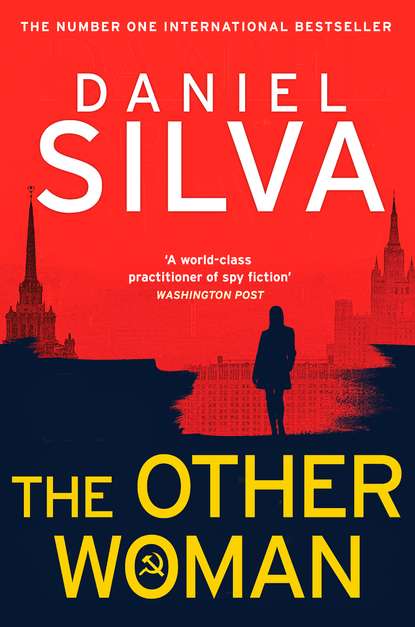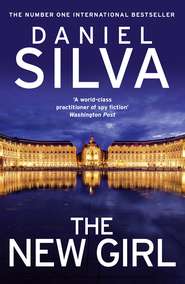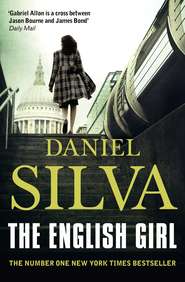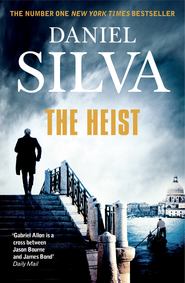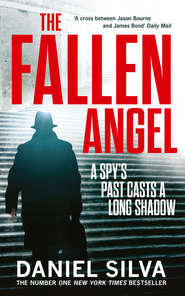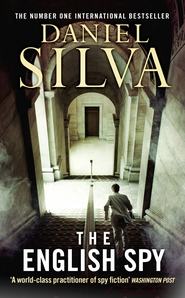По всем вопросам обращайтесь на: info@litportal.ru
(©) 2003-2024.
✖
The Other Woman
Автор
Год написания книги
2019
Настройки чтения
Размер шрифта
Высота строк
Поля
“Do you think it’s possible,” he asked, “that the children slipped back into the apartment without your knowing it?”
“Anything’s possible. Why don’t you check?”
Gabriel moved silently to the door of the children’s room and entered. Before departing for Vienna, he had traded out their cribs for a pair of junior beds, which meant they were free to move nocturnally about the apartment at will. For now, though, they were sleeping soundly beneath a mural of Titianesque clouds that Gabriel had painted after a blood-soaked confrontation with the Russian secret service.
He leaned down and kissed Raphael’s forehead. The child’s face, lit by a shaft of light from the half-open door, looked shockingly like Gabriel’s. He had even been cursed with Gabriel’s green eyes. Irene, however, looked more like Gabriel’s mother, for whom she was named. Chiara was the forgotten ingredient of the children’s genetic recipe. Time would change that, thought Gabriel. A beauty like Chiara’s could not be suppressed forever.
“Is that you, Abba?”
It was Irene. Raphael could sleep through a bomb blast, but Irene, like Gabriel, was easily woken. He thought she had the makings of a perfect spy.
“Yes, sweetheart,” he whispered. “It’s me.”
“Stay for a while.”
Gabriel sat down at the edge of her bed.
“Pat my back,” she commanded, and he laid his hand gently on the warm fabric of her pajamas. “Did you have a good trip?”
“No,” he answered honestly.
“I saw you on television.”
“Did you?”
“You looked very serious.”
“Where did you learn a word like that?”
“Like what?”
“Serious.”
“From Mama.”
Such was the language of the Allon household. The children referred to Gabriel as “Abba,” the Hebrew world for father, but Chiara they called only “Mama.” They were learning Hebrew and Italian simultaneously, along with German. As a result, they spoke a language only their parents could possibly comprehend.
“Where did you go, Abba?”
“Nowhere interesting.”
“You always say that.”
“Do I?”
“Yes.”
The children had only the vaguest sense of what their father did for a living. They knew that his picture sometimes appeared on television, that he was recognized in public places, and that he was surrounded constantly by men with guns. So were they.
“Did you take good care of your mother while I was gone?”
“I tried, but she was sad.”
“Was she? Why?”
“Something she saw on television.”
“Be a good girl and go back to sleep.”
“Can I sleep with you and Mama?”
“Absolutely not.”
His tone was stern. Even so, Irene giggled. This was the one place where no one followed his orders. He patted the child’s back for another minute more, until her breathing grew deep and regular. Then he lifted himself cautiously from the edge of the bed and moved toward the door.
“Abba?”
“Yes, my love?”
“Can I have one last kiss?”
He kissed her more times than he could possibly count. He kissed her until, happily, she begged him to leave.
Entering the kitchen, Gabriel found a stockpot of water bubbling on the stovetop and Chiara working a lump of Parmigiano-Reggiano cheese over the surface of a grater. She did so deftly and seemingly without effort, the way she did most things, including caring for the children. When she had produced the allotted amount, she traded the lump of Parmigiano-Reggiano for Pecorino and grated that, too. Gabriel quickly surveyed the other ingredients arrayed on the counter. Butter, olive oil, a tall pepper grinder: the makings of cacio e pepe. The simple Roman pasta dish was one of his favorites, especially the way Chiara prepared it.
“You know,” he said, watching her work, “there’s a very nice man in the Mahane Yehuda Market who will do that for you.”
“Or maybe I should just buy it in a jar at the supermarket.” She shook her head reproachfully. “The cheese has to be grated to the proper consistency. Otherwise, the results will be disastrous.”
He frowned at the small television at the end of the counter. “Just like Vienna.”
Chiara plucked a strand of spaghetti from the pot and after testing it poured the rest through a colander. Next she tossed it with melted butter, olive oil, the grated cheeses, and a few ounces of pasta water, and seasoned the dish with enough pepper to give it a bit of bite. They ate together at the little café table in the kitchen, the baby monitor between them, the television playing silently. Gabriel declined Chiara’s offer of Tuscan red wine; only heaven knew what the night might bring. She poured a small glass for herself and listened intently to his description of the events in Vienna.
“What happens now?” she asked.
“We undertake a rapid but unsparing review to determine where the leak occurred.”
“Who knew the address of the safe flat?”
“Eli, Mikhail, the Neviot officers, the deskman from Housekeeping who rented it, and six field security men, including my bodyguards. And Uzi, of course.”
“You didn’t mention the British.”
“Didn’t I?”
“Surely, you have a suspect.”
“I wouldn’t want to prejudice the investigation in any way.”





